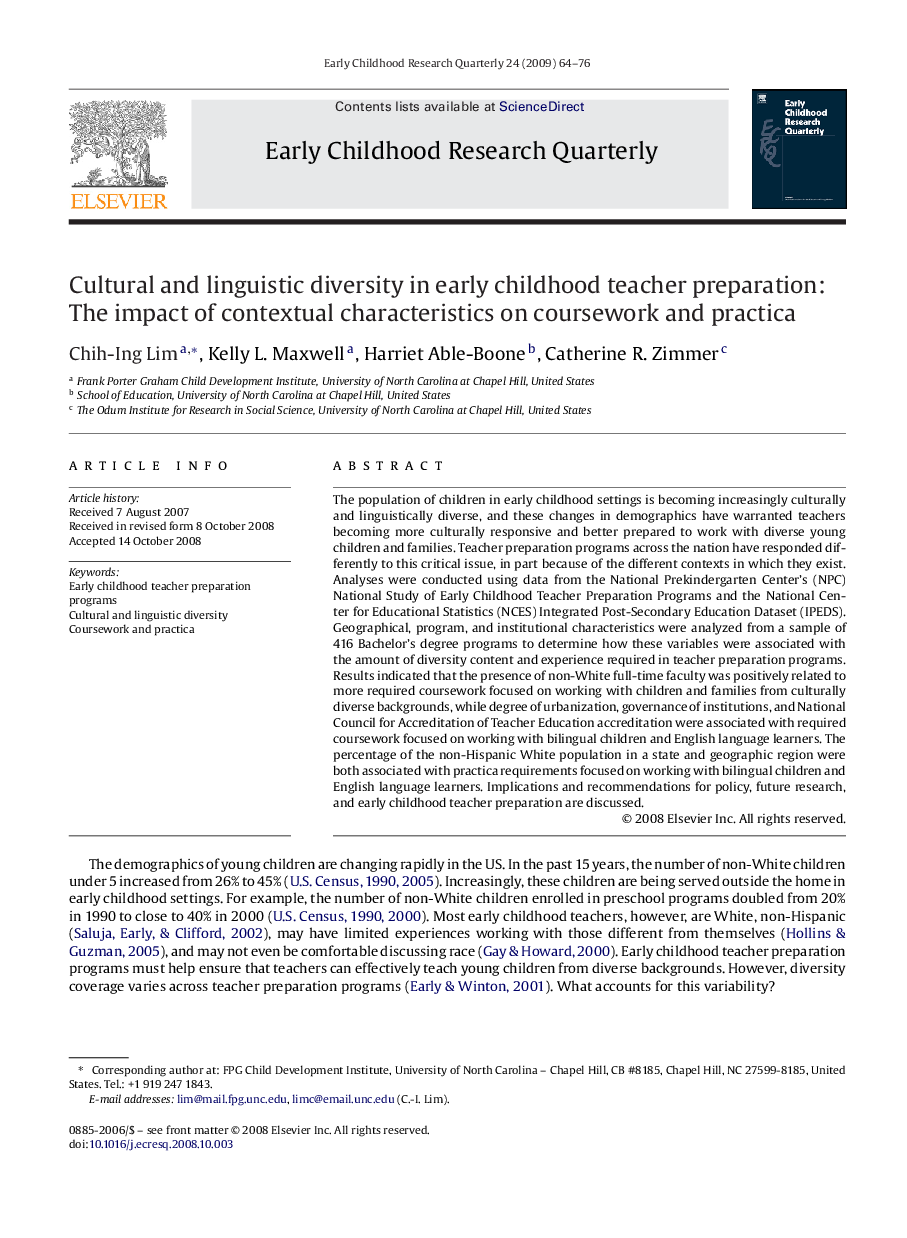| Article ID | Journal | Published Year | Pages | File Type |
|---|---|---|---|---|
| 354038 | Early Childhood Research Quarterly | 2009 | 13 Pages |
The population of children in early childhood settings is becoming increasingly culturally and linguistically diverse, and these changes in demographics have warranted teachers becoming more culturally responsive and better prepared to work with diverse young children and families. Teacher preparation programs across the nation have responded differently to this critical issue, in part because of the different contexts in which they exist. Analyses were conducted using data from the National Prekindergarten Center’s (NPC) National Study of Early Childhood Teacher Preparation Programs and the National Center for Educational Statistics (NCES) Integrated Post-Secondary Education Dataset (IPEDS). Geographical, program, and institutional characteristics were analyzed from a sample of 416 Bachelor’s degree programs to determine how these variables were associated with the amount of diversity content and experience required in teacher preparation programs. Results indicated that the presence of non-White full-time faculty was positively related to more required coursework focused on working with children and families from culturally diverse backgrounds, while degree of urbanization, governance of institutions, and National Council for Accreditation of Teacher Education accreditation were associated with required coursework focused on working with bilingual children and English language learners. The percentage of the non-Hispanic White population in a state and geographic region were both associated with practica requirements focused on working with bilingual children and English language learners. Implications and recommendations for policy, future research, and early childhood teacher preparation are discussed.
